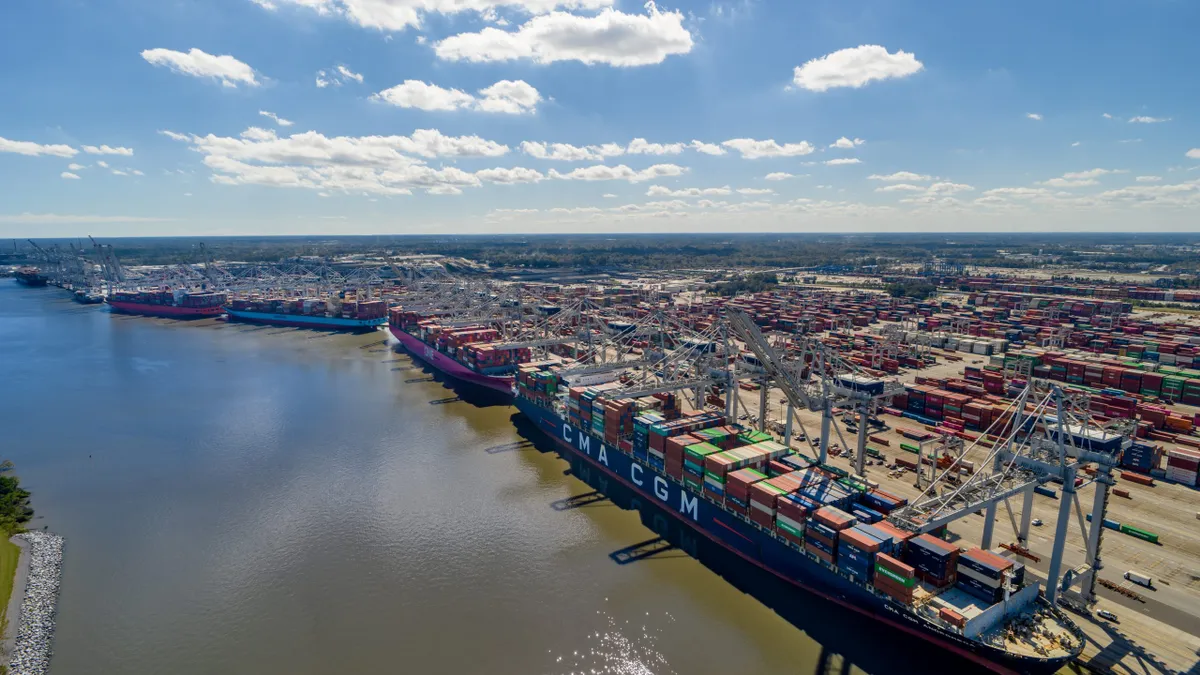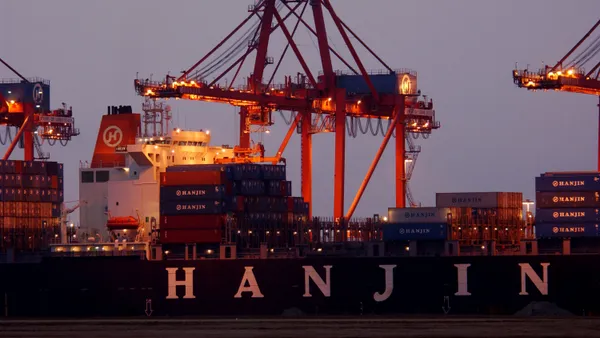Dive Brief:
- Trade growth from auto suppliers for Hyundai’s upcoming electric vehicle manufacturing plant drove up May cargo volumes at the Georgia Ports Authority, port President and CEO Griff Lynch said in a June 13 press release.
- The Georgia ports handled 490,330 total TEUs in May, up 22% year over year and the fifth consecutive month of YoY growth.
- Georgia is “benefiting from source shifting, as more manufacturers establish production facilities in Southeast Asian locations that favor delivery via Savannah,” Lynch said. Retailers looking to rebuild inventories also drove volumes.
Cargo volumes by the numbers
Dive Insight:
Cargo volumes at the Georgia Ports have been steadily growing, with Hyundai’s more than $5 billion manufacturing campus leading to a series of investments from 17 suppliers in the state. The plant is already driving growth, despite production slated to start in Q4.
“Both pillars of GPA’s business — the container trade in Savannah and the autoport in Brunswick — will be positively impacted by the new Hyundai Metaplant now under construction and the whole ecosystem of suppliers that are locating in Georgia to support Hyundai,” according to Bruce Kuzma, the port’s VP for ocean carrier and non-container sales.
The port’s Garden City Terminal will receive parts and suppliers, while finished vehicles not sold on the domestic market will be exported via Colonel’s Island in Brunswick, he added.
Port Brunswick, Georgia Port Authority’s dedicated facility for vehicle shipments, has seen an uptick in auto volumes. It handled 80,600 units of roll-on/roll-off cargo in April — up 44% YoY, Lynch said during a May board meeting.
Diversion from the Port of Baltimore to Colonel’s Island Terminal, also increased volumes by about 9,000 import vehicles. Meanwhile, ocean carrier Zim added a new service, called Gold Star, to serve automotive manufacturers looking for fast and secure shipping services into the U.S. and Mexico.
Cargo volumes at the Southeast port are posed for further growth in June, Lynch said, as more than 320,000 TEUs of import cargo destined for Savannah are currently on the water.














